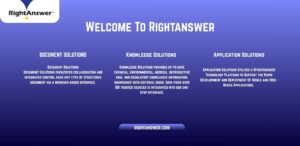Artificial Intelligence in Finance: Usages and Benefits
Artificial Intelligence in Finance Artificial Intelligence (AI) is reshaping the finance industry—unlocking new efficiencies, enabling smarter decisions, and improving transparency....

Artificial Intelligence in Finance
Artificial Intelligence (AI) is reshaping the finance industry—unlocking new efficiencies, enabling smarter decisions, and improving transparency. Whether you’re a blockchain developer, an Agentic AI Developer, a professional in artificial intelligence, or building an AI Course, understanding how finance adopts and benefits from AI offers invaluable insights.
1. AI in Finance: Key Use Cases
1.1 Personalization & Customer Experience
AI systems analyze user behavior, transaction history, credit scores, and even social media signals to deliver tailored banking products and financial advice. Millennial and Gen Z investors use AI tools like robo-advisors and portfolio apps—41% say they trust these tools with investment decisions
1.2 Fraud Detection & Risk Management
AI-powered fraud systems flag anomalies in real-time, spotting abnormal transactions or account behavior. Vodafone financial services notes AI’s central role in identifying spending patterns and reducing fraud risk .
1.3 Credit Scoring & Underwriting
Machine learning-powered credit models—like ZestFinance—evaluate borrower risk using demographic, behavioral, and transaction data, expanding credit access to non-traditional applicants.
1.4 Algorithmic Trading & Investment
AI systems power high-frequency trading, analyze news and sentiment, and manage portfolios. Platforms like BlackRock’s Aladdin use NLP to assess markets, while OpenAI-based tools are transforming private equity deal workflows.
1.5 Compliance & Regulatory Reporting
Financial institutions use AI to monitor transactions for anti-money laundering (AML) practice, ensure regulatory compliance, and speed up reporting—freeing human teams for oversight and interpretation.
1.6 Process Automation & Productivity
From chatbots to internal operations, AI automates manual tasks—like data reconciliation and loan processing—improving speed, cost, and consistency .
2. Major Benefits of AI in Finance
2.1 Efficiency & Cost Savings
By reducing manual labor and streamlining operations, AI helps institutions reduce costs significantly. For example, JPMorgan estimates almost $1.5 billion saved through AI in fraud detection, trading, and credit decisioning.
2.2 Improved Accuracy & Risk Control
AI’s predictive models use historical and real-time data to improve detection of fraud, credit risk, and market trends—helping financial institutions make smarter, data-guided decisions .
2.3 Enhanced Customer Engagement
With 24/7 intelligent chatbots and AI agents, financial services can offer personalized support, instant loan approvals, and proactive financial planning.
2.4 Competitive Advantage
Financial institutions that adopt AI early gain stronger cost structure and innovation capacity. AI-driven profit boosts are estimated at $170 billion over five years for banking alone.
2.5 Regulatory Compliance & Transparency
AI’s deep auditing capabilities support compliance with IFRS, Basel, and local rules; blockchain integration enhances traceability and immutable audit trails. This is especially powerful for a blockchain developer in finance deploying on-chain logs for data provenance.
3. Emerging Players in Finance AI
3.1 Generative & Multimodal AI
Models that process text, audio, and visuals enable advanced document analysis, regulatory reporting, and customer communication—all in near real-time. CFOs at major firms (42%) are now piloting Gen AI in finance workflows .
3.2 Agentic AI & Autonomous Agents
Autonomous agents—developed by Agentic AI Developers—can autonomously manage trades, analyze portfolios, and monitor compliance. Platforms like FinRobot enable specialized AI agents for financial tasks like analysis and credit checking.
4. Role of Credentials & Expertise
🔹 Blockchain Developer
Your skills power record integrity, provenance, and tokenization in AI-driven finance. Smart contracts can tokenize assets or automate loan execution based on AI model outputs.
🔹 Agentic AI Developer
You design autonomous AI agents that scan markets, rebalance portfolios, detect fraud, or manage treasury and compliance—vital for modern financial institutions.
🔹 Artificial Intelligence Specialist
As an AI practitioner, you build predictive models, interpret financial text, enhance credit systems, and manage risks such as bias and model drift.
🔹 AI Course Designer / Educator
Creating an actionable AI Course around finance AI—with modules on agentic finance, blockchain integrations, fraud detection, and ethical compliance—is valuable for upskilling professionals across fintech and traditional banking.
5. Risk and Ethical Challenges
5.1 Model Reliability & Stability
AI tools must be rigorously validated to avoid introducing systemic risk. Institutions like OECD call for data quality, governance, and transparency.
5.2 Bias & Fairness
AI credit scoring can reflect historical biases, leading to fairness challenges. Ongoing human oversight and bias mitigation techniques are critical .
5.3 Data Privacy & Security
AI must comply with GDPR, CCPA, and financial regulations—especially when analyzing personal financial behavior and transaction data. AI systems must also be secure to prevent manipulation.
5.4 Job Disruption
Automation may displace analysts and junior roles—but many institutions aim to use AI to enhance human performance rather than replace it .
6. Implementation Roadmap
Step 1: Education & Certification
Enroll in or design a finance-focused AI Course that covers risk modeling, chatbot deployment, compliance monitoring, agent-driven trading, and blockchain integration—augmented with real-world case studies and projects.
Step 2: Pilot Targeted Use Cases
Start with manageable deployments: fraud detection, credit scoring, or personalized advising.
Step 3: Scale Using Agentic AI
Once validated, progress toward autonomous agents that manage trades, reconcile records, or monitor risk in real-time.
Step 4: Integrate Blockchain
As a blockchain developer, implement smart contracts for data logging, securing audit trails, and tokenizing finance products or compliance checks.
Step 5: Governance & Human Oversight
Adopt model risk frameworks and real-time monitoring dashboards. Ensure AI decisions remain explainable and auditable.
7. Real-Life Highlights & Industry Outlook
- JPMorgan’s Coach AI is used by over 200,000 advisors—delivering information 95% faster and adding ~$1.5B in savings.
- Private credit managers use Gen AI to streamline due diligence and generate portfolios in weeks instead of months—boosting agility.
- Citi projects a $170 billion profit increase for banks via AI—though 54% of banking jobs could be affected by automation.
- OECD and financial regulators urge risk-based governance frameworks to manage AI-related amplification of financial risks .
Conclusion
AI is not just supplementing finance—it’s revolutionizing it. From fraud detection, credit scoring, and algorithmic trading, to compliance and personalized banking, AI unlocks new levels of efficiency, insight, and competitiveness.
To lead this transformation:
- Leverage your skills as a blockchain developer to secure AI systems
- Drive innovation as an Agentic AI Developer by automating finance intelligence
- Deepen your artificial intelligence capabilities through model-building and mitigation of systemic risks
- Build or teach a comprehensive AI Course that equips others to deploy AI responsibly in finance.
Want help designing an AI Course outline, prototyping an autonomous finance agent, or planning a blockchain-AI integration strategy? Just let me know—we can build it together.






